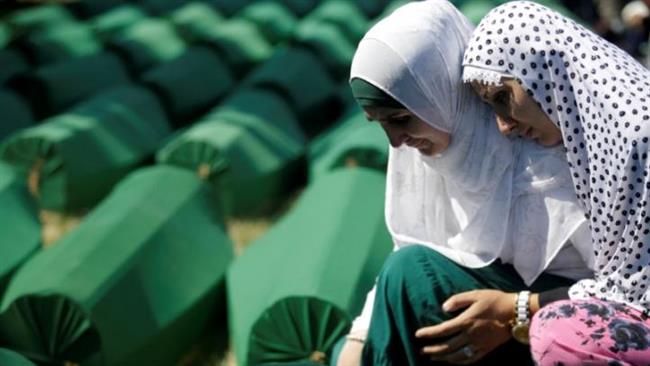
RNA - The court declared the ruling in The Hague on Tuesday, ordering the Dutch state to pay some 30 percent of any damages to the victims.
"The court finds that the Dutch state acted unlawfully," Judge Gepke Dulek said in the ruling, which upholds a 2014 ruling by a lower court.
"The conclusion is that the Dutchbat (Dutch peacekeepers) knew that during the evacuations by the Bosnian Serbs to separate the Muslim men and boys there was a real risk they could face inhumane treatment or execution," she said.
The ruling confirmed that the Dutch soldiers had also facilitated the separation of the men and the boys among the refugees.
The 350 deaths were part of the July 1995 Srebrenica Genocide, Europe's worst atrocity since World War II, in which 8,000 Muslim men and boys were killed and between 25,000 and 30,000 Muslim women were forcibly transferred and abused.
On July 13, 1995, Dutch UN peacekeepers, tasked with protecting tens of thousands of refugees who had flooded to their base in the Bosnian city of Srebrenica, were overrun by Bosnian Serb forces in what was supposed to be a UN safe haven.
The Dutch troops, overwhelmed by the number of refugees, first shut the gates to new arrivals and then allowed the Bosnian Serbs to separate the men and boys and take them in buses to their deaths.
In 2014, a Dutch lower court had ruled that the state was liable for the deaths of some 350 men taken from their base along with other refugees.
The controversy still continues in the Netherlands over the role of the Dutch peacekeepers in the incident.
Late Monday, a lawyer for 206 former Dutch peacekeepers said they were suing the government for dispatching them to an "impossible" mission.
"As from tomorrow (Tuesday), 206 of my clients are claiming compensation of 22,000 euros each (4.5 million euros in total)," the lawyer said in a TV interview.
In 2016, Dutch Defense Minister Jeanine Hennis-Plasschaert admitted that the battalion had been dispatched to defend Srebrenica "without adequate preparation... without the proper means, with little information, to protect a peace that no longer existed."
She described the measure as "an unrealistic mission, in impossible circumstances."
847/940